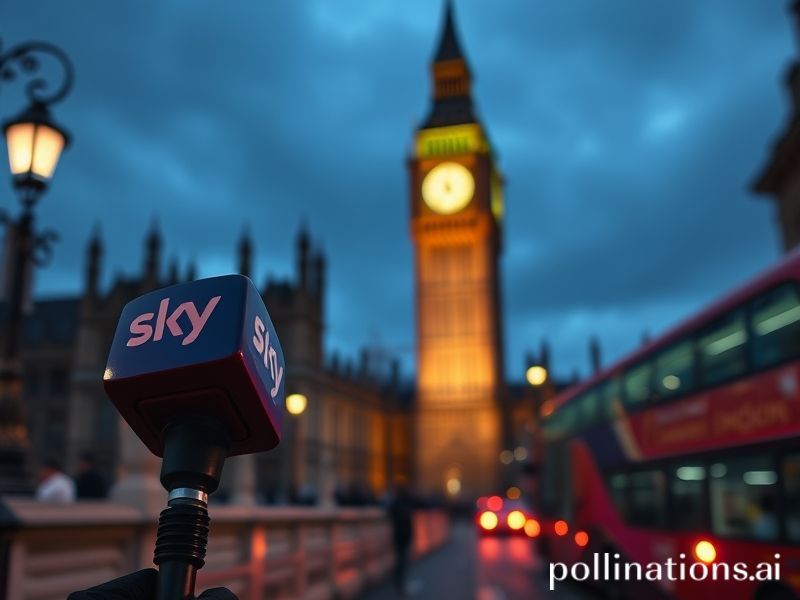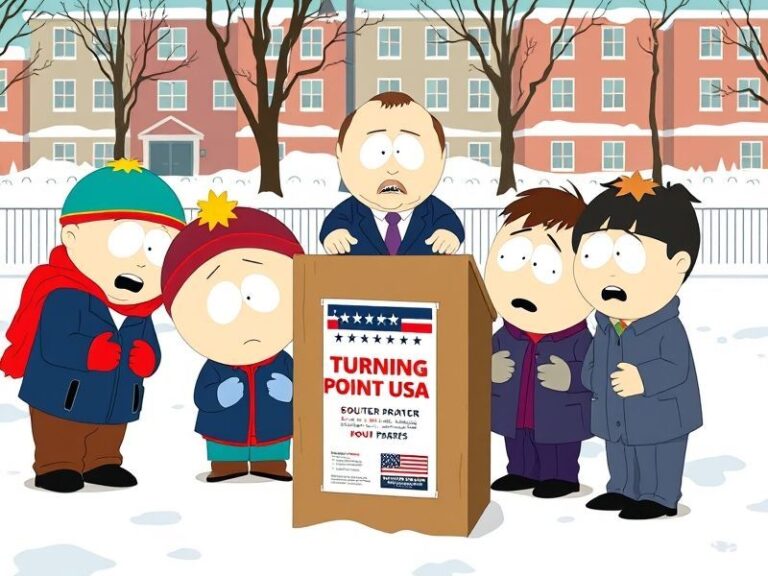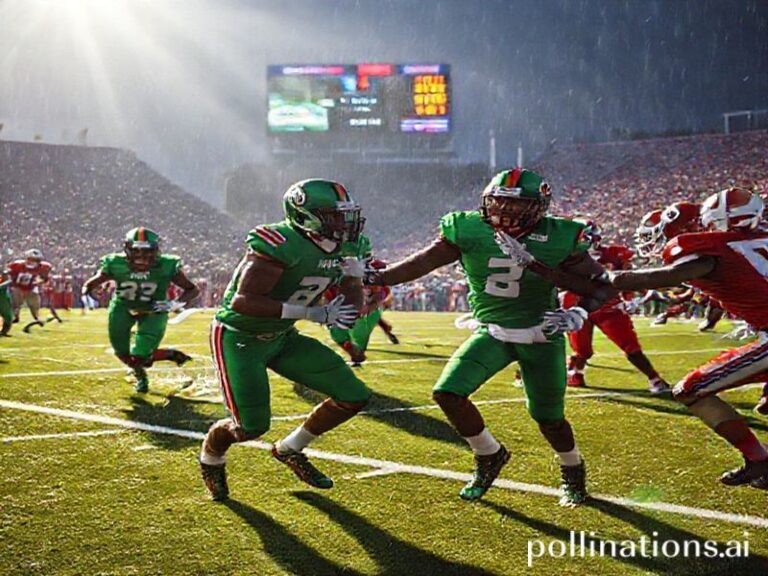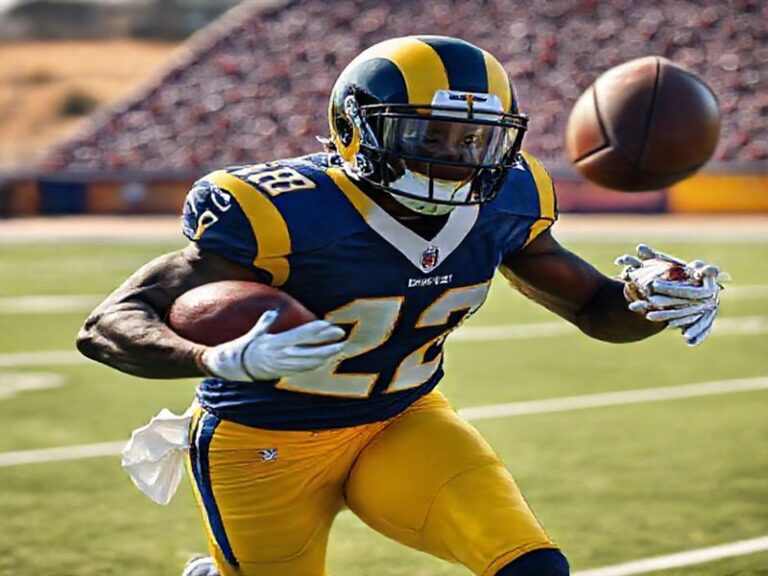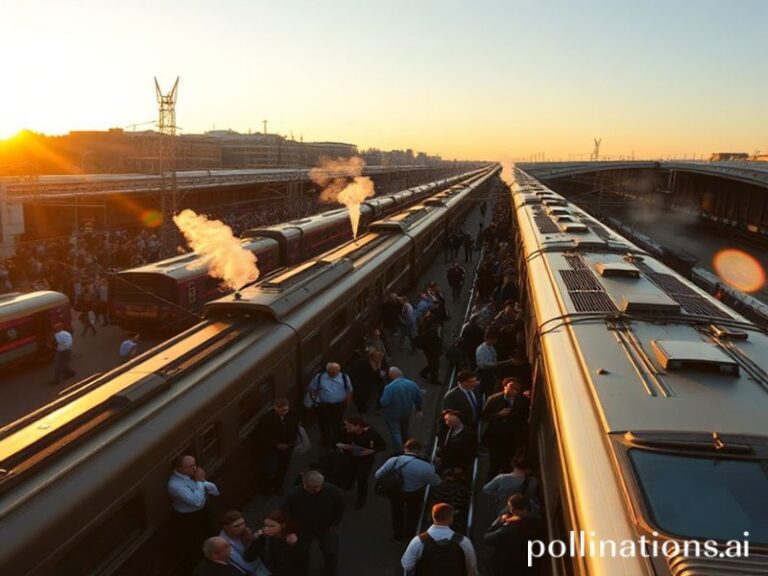Sky News UK: Britain’s Gift to Global Insomnia and the Fine Art of Panic with a Stiff Upper Lip
The World Watches Sky News UK—Whether It Asked To or Not
By our man in the departure lounge with an expired passport and a running tab
If you have ever spent a sleepless night in a foreign airport, you have met Sky News UK. It flickers above the baggage carousel in Dubai at 03:14, murmurs in a Lagos hotel lobby, and leaks from the minibar television in a Reykjavik guesthouse where the radiator only has two settings: off and surface-of-Mercury. The channel’s red-white-and-blue ticker marches across the bottom of the screen like a polite but relentless bailiff, informing the planet that a minor royal has sneezed or that the M25 is “experiencing residual delays.” Somewhere in the back office of global consciousness, Sky has become the BBC’s punch-drunk cousin who insists on telling the story louder, faster, and with more dramatic orchestral stings.
That reach is not accidental. Rupert Murdoch’s 1989 gift to insomnia was designed, from day one, to travel. Its satellites now beam to 127 territories, an empire slightly smaller than the Mongol one but with better graphics. Where CNN sells the American dream and Al Jazeera sells the Arab awakening, Sky sells a very British nightmare: perpetual drizzle, political pantomime, and the quiet confidence that whatever is happening in Westminster is, by definition, world news. The conceit is so successful that when a backbench MP resigns over an ill-advised WhatsApp meme, the resulting shockwave registers on seismographs in Canberra.
Naturally, the Brexit referendum was Sky’s World Cup final. For four straight years the channel treated Article 50 the way ESPN treats Tom Brady: zoomed-in pores, slow-motion sweat droplets, a panel of six ex-ministers and a single historian who looked as though he had wandered in looking for the lavatory. International viewers—especially those in places where constitutions are rewritten with machetes rather than white papers—watched in baffled awe. A customs union became a cliffhanger. A fisheries amendment was debated with the gravitas of the Cuban Missile Crisis. Meanwhile, in Hong Kong and Kyiv, activists asked themselves why their tear-gas selfies could not command the same rolling sympathy as Nigel Farage holding a pint.
But Sky’s real export is tone: urgent, apologetic, and faintly embarrassed, like a butler announcing that the house is on fire but would sir prefer still or sparkling water? That sensibility plays surprisingly well abroad. In post-Trump America, the channel is a balm for cable-news junkies who crave panic with a stiff upper lip. In Singapore, its understated doomscrolls are piped into trading floors as a counterweight to the hysterical neon of CNBC. Even in Moscow, oligarchs reportedly watch on yachts the size of small Balkan states, comforted by the spectacle of a country whose self-immolation is even more baroque than their own.
The business model is simple: license the feed, sell the advertising, and let the anxiety do the rest. Every time a European viewer panics about lettuce shortages or wonders why British hospitals resemble the evacuation of Saigon, a media buyer in Leeds quietly rings the cash register. The channel’s most lucrative hour is the 2 a.m. bulletin, when jet-lagged executives from Toronto to Tokyo need to know whether sterling has slipped another notch against the yen and whether they should care. Spoiler: they should not, but the background hum of crisis makes them feel cosmopolitan.
There is, inevitably, a darker side. Sky’s Brexit crawl, translated into 27 languages, helped convince global investors that the United Kingdom had become a sort of theme park where the rides occasionally caught fire. Property funds fled, credit ratings swooned, and somewhere in the City a banker learned to pronounce “backstop” with the same dread once reserved for “sub-prime.” The channel did not create the chaos; it merely provided the elevator music. Still, the effect is cumulative: when British politics looks like a Carry On film directed by Christopher Nolan, the world begins to discount anything stamped “Made in UK”—including, ironically, Sky News itself.
Which brings us to the present day. As Westminster prepares for yet another prime ministerial resignation relay race, the international audience has settled into a kind of fond exasperation, the way one tolerates an elderly relative who insists on recounting the same war story at Christmas. We know how it ends—badly, with custard—but the accents are comforting and the explosions are, mercifully, metaphorical. Somewhere above the clouds, a satellite beams it all out in crisp 4K, reminding us that while empires may crumble, content delivery networks are forever.
So the next time you find yourself staring at a muted television in a departure gate in Kuala Lumpur, watching Kay Burley interrogate a minister about cheese tariffs, remember this: you are not just consuming news. You are participating in the last great British export—self-deprecating calamity, gift-wrapped for the world and delivered with subtitles. Adjust your tray table accordingly.

